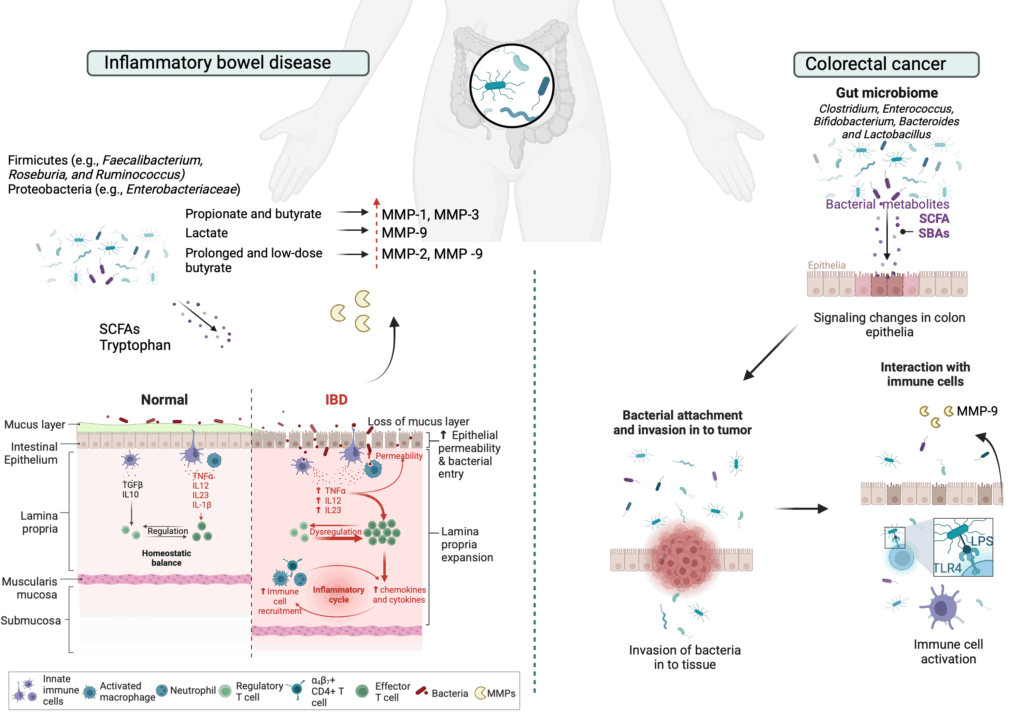Matrix metalloproteinases (MMPs) are key enzymes involved in extracellular matrix (ECM) remodeling, regulating a wide range of cellular and immune processes in both homeostatic and pathological conditions. Host–microbiota interactions play a critical role in maintaining ECM balance; however, during dysbiosis, this regulation is disrupted, leading to compromised barrier integrity, pathogen translocation into circulation, and the development of systemic diseases and cancer. This review highlights the bidirectional relationship between MMP expression/activity and microbiota dysbiosis, emphasizing tissue-specific alterations in MMP activity that contribute to disease progression. In addition, it integrates interdisciplinary evidence to illustrate the MMP-dependent mechanisms underlying various pathologies associated with oral and gut microbiome dysbiosis, including long-range effects through the gut–skin and gut–brain axes. Thus, this review introduces the emerging field of MatrixBiome, which explores the complex interactions between the ECM, microbiota, and host tissues. Finally, it also outlines therapeutic strategies to modulate MMP levels, either indirectly through microbiome-targeted approaches (e.g., prebiotics, probiotics, and postbiotics) or directly using MMP inhibitors, offering promising avenues for future clinical interventions.
Keywords: microbiome; matrix metalloproteinases; matrixbiome; extracellular matrix



